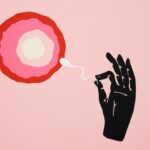6 Signs Of Erectile Dysfunction
Erectile dysfunction or impotence refers to the inability to achieve or sustain an erection satisfactory for sexual intercourse. In other words, it refers to inadequate size or hardness of erections or poor sustainable erections.
Initially erectile dysfunction was considered to be caused by psychological problems. Normally experienced during times of stress in men. Frequently erectile dysfunction can be considered a sign of health problems which needs treatment.
Erectile dysfunction could also be a sign of emotional or relationship difficulties that need to be addressed by a therapist.
Before we focus on the signs of erectile dysfunction, let us go through a few causes of erectile dysfunction. Here are some possible causes of erectile dysfunction:
- Cardiovascular disease
- Diabetes
- Hypertension
- Hyperlipidemia
- Damage from cancer or surgery
- Injury to the genitals
- Obesity or being overweight
- Increased age
- Stress
- Anxiety
- Relationship issues
- Drug use
- Alcohol use
- Smoking
- Liver cirrhosis
If you have erectile dysfunction you would be experiencing the following:
- Reduced interest in sex: This normally occurs in men with psychologic disorders. There would be signs of depression such as sadness, loss of appetite, hopelessness, and difficulty in sleeping. This could be as a result of hormonal disorders such as hypogonadism in men. They present also with sleep disturbances, decreased sex drive (libido), mood changes and eventually, decrease in the size of muscles and testes.
- Difficulty maintaining an erection during sexual intercourse: This occurs in men with systemic diseases such as hypertension. Antihypertensives given to these individuals such as beta blockers (atenolol, carvedilol, metoprolol and propranolol) and diuretics (such as furosemide and hydrochlorothiazide) has a side effect of reducing the duration of a sustained erection.
- Trouble getting an erection: This occurs in nerve disorders such as diabetic neuropathy, multiple sclerosis, spinal cord disorders and stroke. Patients present with numbness, burning sensation or pain in the feet and genitals. There is sometimes urinary incontinence.
There are other sexual disorders that are related to erectile dysfunction such as:
- Premature ejaculation
- Delayed ejaculation
- Anorgasmia (Inability to achieve orgasm after ample stimulation)
It is recommended to see your primary care physician, if erectile dysfunction creates anxiety or threatens your sexual relationship. In addition, seek medical care when there is evidence of painful erections or difficult erections because your penis is curved.
If erectile dysfunction persists, it is an early warning sign of a more serious condition. This could be due to a coronary artery disease or diabetes. Seeking medical attention during this period is key in treating the underlying medical condition involved.
REFERENCES
- https://www.webmd.com/erectile-dysfunction/default.htm
- https://www.merckmanuals.com/professional/genitourinary-disorders/male-sexual-dysfunction/erectile-dysfunction?query=erectile%20dysfunction
- https://www.merckmanuals.com/home/men-s-health-issues/sexual-dysfunction-in-men/erectile-dysfunction-ed?query=erectile%20dysfunction
- https://emedicine.medscape.com/article/444220-overview





